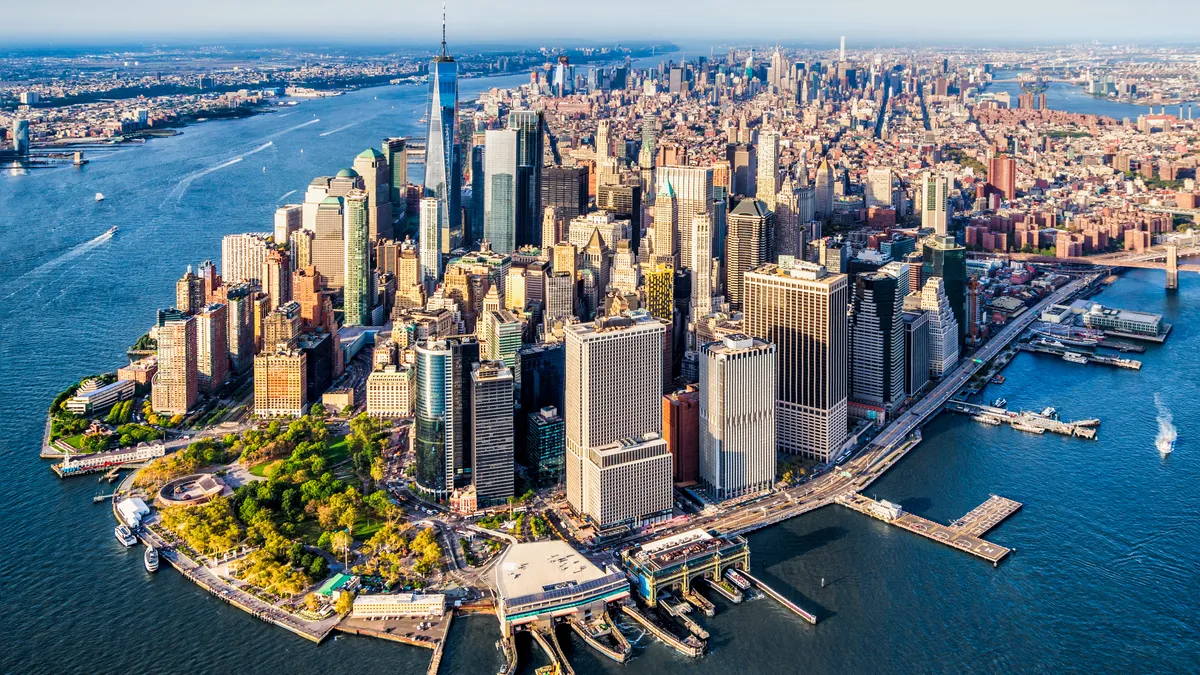Dive Brief:
- New York City Mayor Eric Adams is calling for the federal government to create a regular, recurring source of funding for coastal infrastructure projects.
- Adams’ ask in a Monday statement came as the city broke ground on a $200 million project to protect lower Manhattan from sea-level rise by elevating Battery Park’s wharf promenade.
- “We’re investing billions in green and grey infrastructure across the city to ensure that New York City is ready for whatever Mother Nature can throw at us,” Adams said in a statement. The need for such projects “isn’t going away,” he said, which is why the federal government needs to “establish reliable sources of funding for key coastal resiliency work across the country.”
Dive Insight:
Rising seas affect coastal cities worldwide, but New York City faces a particularly dire situation, with higher rates of sea-level rise than the global average, according to the NYC Panel on Climate Change. Parts of the city are also sinking by a couple of millimeters a year — a number that sounds small but that scientists warn can increase local flood risk linked to sea-level rise.
Adams announced the initiative to make Manhattan’s Battery Park more resilient in his 2023 State of the City address. The project will protect the park against sea-level rise projected in 2100, which is predicted to reach up to 65 inches. The work will include an enhanced drainage system, salt-tolerant plantings and permeable pavement, State Assemblymember Jenifer Rajkumar said in a statement. The city expects to complete the project in 2026.
The Battery Park project is also the city’s first major project to meet a clean construction commitment by using low-carbon and recycled materials and relying more on barge transportation, rather than trucks. “This equates to the removal of more than 2,000 trucks from the roadways in Lower Manhattan, avoiding approximately 400 metric tons of carbon emissions,” according to the city’s May 6 news release.
“This project is a window into the future of sustainable and clean construction practices where we use our waterways and marine highway instead of trucks,” Elijah Hutchinson, executive director of the Mayor’s Office of Climate and Environmental Justice, said in a statement.












